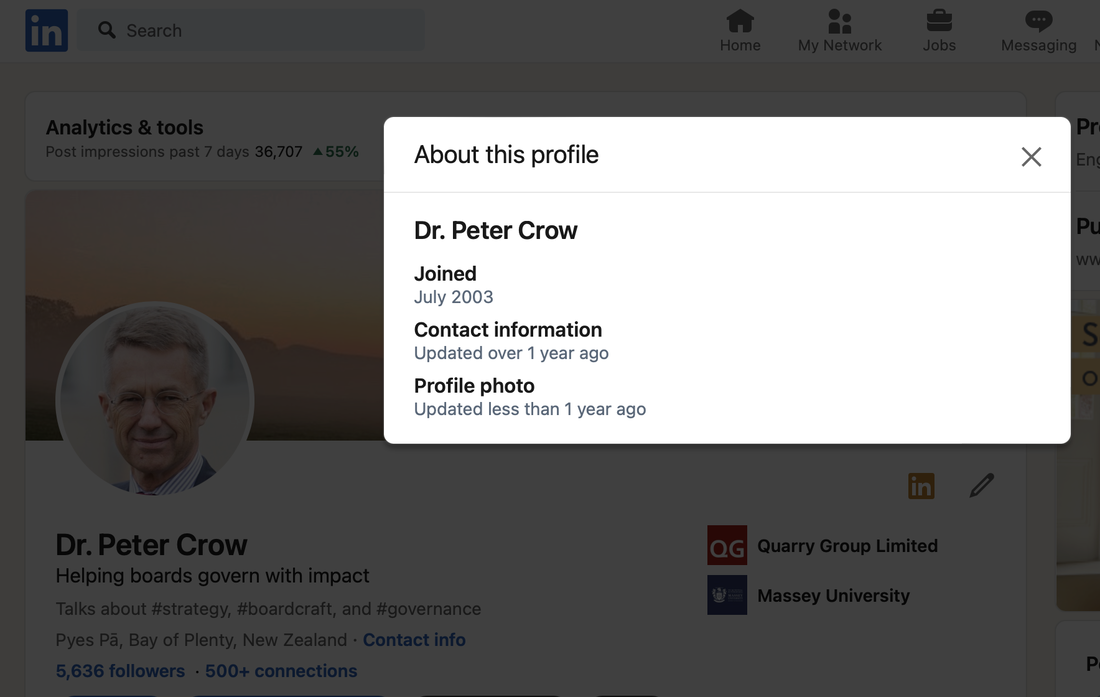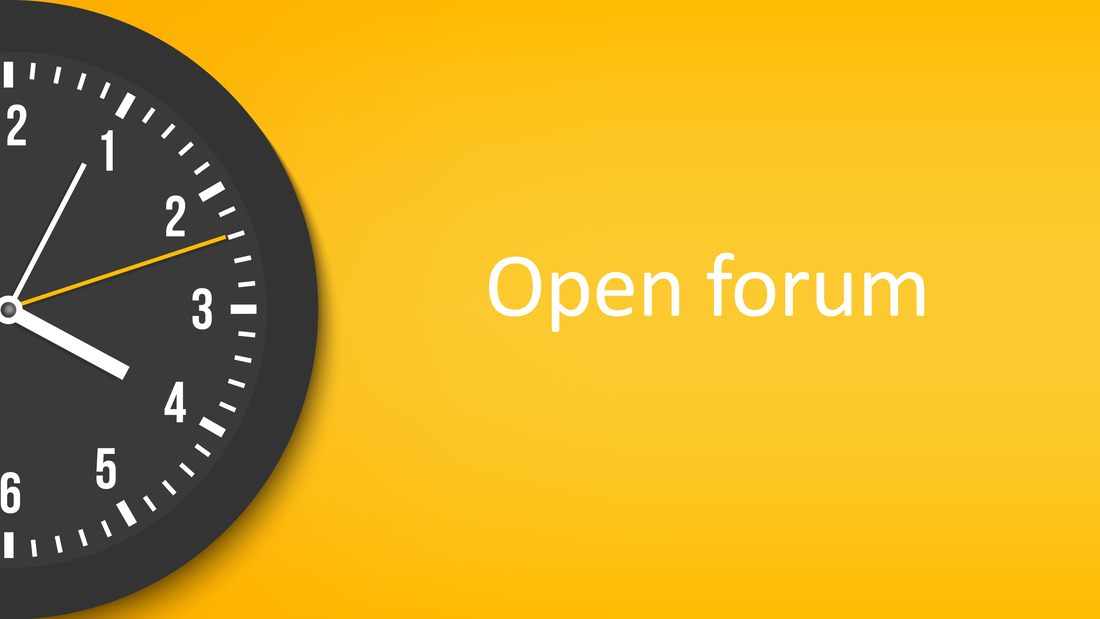|
When I was a boy, milk was free (I was raised on a dairy farm), but you could buy it in a glass bottle with a silver foil top (pasteurised but not homogenised) for four cents a pint at the general store. Television (once we got one, in 1969, to see the Apollo 11 moonshot) was a grainy, black-and-white experience, with a single channel available. You got to watch whatever the broadcaster chose to deliver across the airwaves. Now, milk costs several dollars a litre, but it comes in many different styles (blue, light blue, skim, lo-fat, full-cream, calcium fortified, lo-lactose and UHT—as well as products called milk that contain no milk at all, such as oat milk and almond milk, in a wide variety of packaging options). Television has changed too: from a take it or leave linear broadcast experience via rabbit-ear antennae, to a plethora of video-on-demand (streaming) options via the internet. These are but two of thousands of examples that illustrate the onwards match of technology. Oh how life has changed, even in my lifetime. The onward march has also affected the way we communicate, not only personally with family and friends, but also with clients, suppliers and the general public as well. The notion of using a fountain pen to handwrite a letter, or making a toll call, seems quaint now—but some of us still value these moments. The emergence of social media has extended our reach in ways not thought possible twenty years ago. Sharing business cards, once commonplace, is now rare. If people want to contact me or learn about me, they tend check my LinkedIn profile (notice the assumption, that I have one), even before mentioning Google or asking about a website or blog. And that brings me to the point of this muse, which is to share one aspect of a conversation with an esteemed company director, in the hope it might encourage others committed to serving the director community. Yesterday, I was asked about the role of social media in my business life, what channels I use and how long had I been using these. The first two questions were readily answered; the third took a little longer—because I needed to find the menu option!
Thank you for permitting me to share my experience. I hope anyone considering using social media or a blog as a channel might be encouraged—not only to do so, but to stick at it over the longer term. My journey to date has been fulfilling; I have met thousands of people from many walks of life and, I hope, they have valued the interaction as much as I have.
0 Comments
Diversity of thought has been widely promoted in recent times, as a mechanism to supposedly increase decision quality in boardrooms. Superficially, the idea of thinking differently is a positive evolutionary development from earlier efforts (think: women on boards) to break what is often described as the Old Boys' Club. That the discourse and intent has begun to move beyond appointing directors on the basis of physical attributes is helpful. And yet, the idea of 'diversity of thought' has long troubled me. How does anyone know what I am thinking, or anyone else in the boardroom for that matter? And what is diversity in this context anyway—me having different thoughts, or several of us thinking differently? Crucially, what of any link to the board's work and purpose, which is to provide steerage and guidance to achieve a strategic goal? Researchers have published correlations based on specific datasets, but the general case (a reliable linkage between demographic diversity and organisational performance) remains elusive. The somewhat amorphous 'diversity of thought' is similarly afflicted. Recently, cognitive diversity (that is, different ways of processing information and approaching problems) has been suggested as a more reliable mechanism to achieve higher quality decisions and, by implication, outcomes. This sounds positive, but reliable explanations are yet to emerge. Why is this so hard? Could the paucity of reliable explanations (of the relationship between board work and company performance) be due to researchers, directors' institutions and others trying to explain board work and develop 'best practice' models looking in the wrong place or using inappropriate tools? What if hypothetico-deductive techniques (in search of a deterministic best practice approach to some aspect of board work) are laid to one side and methods more common in social science used (critical realism or contingency theory, for example)? Should researchers embrace the idea that boards are social organisms, and that governance is a mechanism activated by the board? For the record, I employed critical realism, long-term observational techniques and contingency theory when researching boards a decade ago, as part of my doctoral research. The study was ground-breaking for it revealed new insights about board work including an explanatory framework. If you want to learn more about this study, check my thesis (academic-speak) or this article (plain-speak). In the past few weeks, I have picked up the question again (thanks to a wandering mind on long haul flights!), and have begun to wonder if fractals and chaos theory might offer a viable pathway to developing a theory of board work. Whether this might be a fruitful search or a blind alley remains unclear. Regardless, my mission is to help boards govern with impact, so the least I can do is dig further. And dig I shall. One request: If you know about fractals, or know of anyone who possess such expertise—especially in relation to social phenomena—could we schedule a call please? I'm starting from a pretty low base!
News has emerged in recent days that the United States House of Representatives is moribund—all for the lack of a Speaker. The Speaker is the person who presides over the House; they are, in effect, the administrative head. But for several weeks now, the House has been without a Speaker—since Kevin McCarthy was removed on 3 October by a motion to vacate. The move, which was unprecedented, has left the House in a precarious position. While several replacements have been considered, none have been appointed. And, without a Speaker, the business of the House cannot proceed. This includes appropriations, to cover expenditure on 'projects' such as the Hamas–Israeli conflict and the Ukraine war. The situation highlights a stark weakness in the system, whereby the US Government system has a single point of failure baked in. Imagine the outcry if a company's decision-making processes stalled, for the lack of a board chair or an unexpected vacancy in the CEO role. Staff, customers, suppliers and shareholders would be upset, and rightly so. The potential for reputational damage would be high as well. Smart companies anticipate such problems by thinking ahead; they appoint deputies and establish succession plans and delegation frameworks to be activated in the event the chair, CEO or key leader is unavailable or unable to serve. And so to the core question: Does your company have appropriate succession and delegations in place, to ensure decision-making continuity when a key leader cannot contribute? If so, that is great. But if not, now might be a good time to put things in order.
And there you have it: before many of us realised, the solar equinox has passed once more—that moment when the sun passes the celestial equator and winter (or, for those in the global south, summer) beckons. The equinox also signals the recommencement of on-the-ground contributions in the Northern Hemisphere. To wit, I shall be in the United Kingdom and Switzerland soon—from 2nd through 13th October, in fact. My programme sees me in London, Leeds, Cambridge, Zurich and St. Gallen, for a variety of contributions:
I am looking forward to hearing the heartbeat of company directors, advisors and others, to understand recent developments and emerging trends, and to discern changes since I visited earlier this year. I have intentionally held space available for a few informal meetings. So, if you want to meet up while I am in your neighbourhood—be it to discuss the work and impact of boards, corporate governance, or some other topic of interest—do get in touch. I would be delighted to hear from you.
One of the great challenges for board directors and executive leaders concerns written expression. How might one cast vision, report progress clearly, make a request unambiguously, or argue a point convincingly if the key messages are not clearly stated? Directors and executives owe a duty to their colleagues in this matter, for written reports are the primary vehicle for sharing ideas, proposals and data before each board meeting. To suggest the quality of the report (especially, the clarity of the message within) may be the difference between success and failure (that is, acceptance or rejection) is, probably, a truism. So, if we are to be convincing in our argumentation, we need to write well. But how? The first thing to acknowledge is that writing is a craft. And, as with any other craft, proficiency is something that emerges over time, as principles are learnt and applied in practice. Look to others who write well, and glean from them. Seek feedback from your readers too, and make adjustments. I have long relied on the guidance of William Zinsser (1922–2015), especially that offered in On writing well. Another great source is the Blue Book of Grammar and Punctuation, which provides specific instructions. How do you ensure board reports and business proposals are well written, and what tools and approaches do you use?
Do you have a question about governing with impact, or driving organisational performance?22/8/2023 One of the great joys of being an independent advisor is the opportunity to spend time with people from a wide range of backgrounds; business and social experiences; walks of life; and, in my case, countries and cultures. The depth and breadth of humanity never ceases to amaze me. Paradoxically, a common thread runs amongst the diversity: people intent on improving organisational effectiveness and making a difference spend lots of time asking questions, lots of questions. When a question is asked from the floor after a keynote talk, during an advisory engagement or professional development workshop, or as part of a confidential discussion or informal chat, something mysterious happens: Both parties learn! This should come as no surprise, for no one has all the answers—although some people behave as if they do. Recently, I posed several questions board directors may wish to consider. The response to that musing has been overwhelming, so I thought an open invitation might be in order. If you have a question about any aspect of corporate governance, strategic management, board craft or the challenge of governing with impact—either personally or on behalf of a board you serve on—please ask and I will gladly respond. Use the comment link here or, if you prefer, send an email. Let's learn together!
The role of company director has become quite visible over the past couple of decades. From hardly rating a mention in the popular press or polite society fifty years ago, public awareness of boards and directors has blossomed in recent times. Questionable practices and failures of various kinds have seen boards become a source of board fascination and disdain—targets of criticism in the eyes of the business media, political class, regulators and, increasingly, the wider public. Activists, institutional investors, proxy advisors, and other stakeholders and supernumeraries have sought to exert influence and press various claims too, on both company priorities and board decision making (think: ESG, disclosures, DEI, climate change, net zero, and more besides). While some boards have responded well to changing circumstances, others have battened down the hatches. Defensiveness can be an important response at times, but it is not a sustainable tactic given the mandate to govern (provide appropriate steerage and guidance to achieve a specified goal). If directors are to steer and guide effectively, they need to consider information, ask questions to check progress and elicit missing information and, having debated various options, make decisions. This is crucial, for the questions directors ask may be the difference between effectiveness and ineffectiveness in role. The following list provides a useful starting point for boards intent on governing with impact:
Do you agree or disagree—I welcome your thoughts on this! Also, what other questions have you found useful?
I have spent four days in Australia this week, meeting with directors, advisors and a couple of institutional leaders in two state capitals. While the weather has been great, a few storm clouds [metaphorically, on the governance horizon] were apparent. Whether these are serious problems, or just differences of opinion, they strike me as being worthy of discussion. I’d be delighted if you would ponder the following situations, and share your thoughts to help me understand why boards, more often than not, erode value.
These examples demonstrate, to me anyway, that questions of what corporate governance is, the role of the board and how governance might be practiced are far from resolved. Directors and their advisors seem to be their own worst enemies. Flawed understandings of what governance is (the provision of steerage and guidance, to achieve an agreed strategic aim), and how it might be practiced, remain serious barriers to boards fulfilling their mandate, which is to ensure the enduring performance of the company. Why do some directors’ institutes, advisory and consulting firms, regulators, academics, and media commentators continue to discuss “best practice” and promote various matters that have little if any direct impact on achieving sustainably high levels of organisational performance? Surely attention needs to be on helping directors and boards do their job well, n’cest ce-pas? I have a few ideas to crack this problem, but I’m keen to hear what you think.
Board are funny things. They are comprised of selected individuals (directors, board members) charged with meeting together to consider various matters for the purpose of making decisions. While it is true to say directors meet, decisions are made by the collective whole—the board—not individual directors. Therefore, every decision is unanimous. Complicating matters, boards only 'exist' when directors meet, and board work is, largely, endogenous; so, they need to be coordinated—someone needs to 'drive' the board. The term 'chairman' (also, 'board chair, 'chair' or sometimes, 'chairperson') is the term used to identify the board member who carries such responsibilities—these being to convene the board’s meetings, ensure duties are discharged, and that steerage and guidance (that is, governance) is effective. But, as all directors are equal in law, the chair's role is exercised through influence, not command in any controlling sense. Given this, how should a board chair, well, chair the board? While there is no one 'best' way of chairing, the following characteristics are conducive to better outcomes:
Governance is tough because, inter alia, things change, sometimes unexpectedly; boards often need to make decisions without all the information they want; linkages between decisions and outcomes are contingent; and, directors' duties are unbounded. If boards are to govern with impact, chairs need to be alert: to ensure directors are actively engaged, and that they identify and consider relevant information, think critically and, together, make smart decisions in the best interests of the company. The chairs' priority is to convene the board and its work, and keep directors on track and the organisation safe. For this, a deft hand is needed.
I’ve been holidaying in Scotland this week, the first of two in the Highlands after whistle-stop visits to Edinburgh and Glasgow. I prefer the countryside over cities, the wide-open spaces and the scenery. The vistas in Scotland are especially magnificent, especially if the weather is fine, which it has been this week. Today, I saw the Jacobite Steam Train in action as it crossed the famous Glenfinnian Viaduct—well almost in action, for the chance of a wayward spark starting a fire in the adjacent bracken has limited this famous tourist experience to a push-me pull-you configuration with a heritage diesel locomotive bringing up the rear. The question, in my mind and the minds of others witnessing the viaduct crossing, was, “Which locomotive is actually doing all the work?” Or, more plainly, what is driving what? From the picture, the answer is not immediately obvious. However, the very presence of the diesel locomotive provides an important clue. And so it was. Today, the Jacobite Steam Train excursion was, in fact, the Jacobite Steam Train experience, powered by diesel. The visual imagery provides a powerful analogy for something else I saw today; a press release issued by the Institute of Directors entitled, “ESG must not neglect governance!” The headline implies that governance (from the Greek, meaning to steer, to guide, to pilot) is little more than a component of ESG (a means of measuring corporate performance). This, despite governance being the term that describes the work of the board of directors (the means by which companies are directed and controlled). But, reading on, the situation is not quite as it first seemed. Dr. Roger Barker, head of the policy unit, acknowledged the importance of boards taking non-financial (so-called, ESG) factors into account when making decisions. But he also noted the emergence of an “ESG industry” that has started to control various agendas, with little interest in the enduring performance of the company. And, with it, boards are being subordinated to a lesser role. Barker issued a strong call: to subsume governance within ESG may well result in the important work of the board in driving business performance becoming neglected. Bravo, Dr. Barker! This is exactly what institutions need to be telling their members and others interested in corporate performance: ESG is a measurement and reporting mechanism, no more and no less. The board of directors is duty-bound to ensure the performance of the company, now and into the future, a high calling. If it is to discharge its duties well, the board needs to remain in control, driving the agenda. In doing so, the board should consider various externalities including social and environmental factors), of course, but it should not be beholden to them or to those applying the pressure.
|
SearchMusingsThoughts on corporate governance, strategy and boardcraft; our place in the world; and other topics that catch my attention. Categories
All
Archives
May 2024
|
|
Dr. Peter Crow, CMInstD
|
© Copyright 2001-2024 | Terms of use & privacy
|











